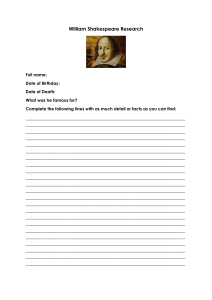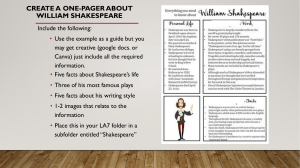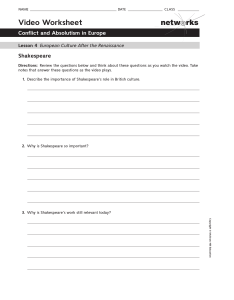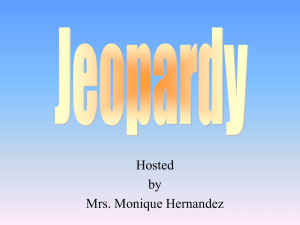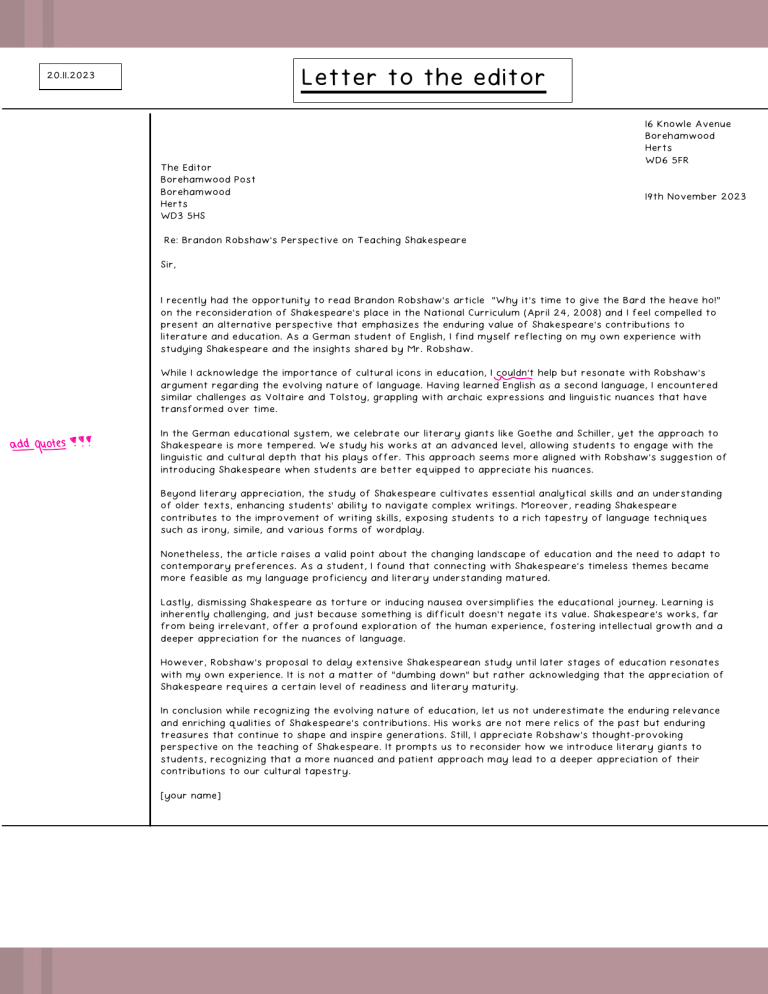
Letter to the editor 20.11.2023 16 Knowle Avenue Borehamwood Herts WD6 5FR The Editor Borehamwood Post Borehamwood Herts WD3 5HS 19th November 2023 Re: Brandon Robshaw's Perspective on Teaching Shakespeare Sir, I recently had the opportunity to read Brandon Robshaw's article "Why it's time to give the Bard the heave ho!" on the reconsideration of Shakespeare's place in the National Curriculum (April 24, 2008) and I feel compelled to present an alternative perspective that emphasizes the enduring value of Shakespeare's contributions to literature and education. As a German student of English, I find myself reflecting on my own experience with studying Shakespeare and the insights shared by Mr. Robshaw. While I acknowledge the importance of cultural icons in education, I couldn't help but resonate with Robshaw's argument regarding the evolving nature of language. Having learned English as a second language, I encountered similar challenges as Voltaire and Tolstoy, grappling with archaic expressions and linguistic nuances that have transformed over time. - aquotes In the German educational system, we celebrate our literary giants like Goethe and Schiller, yet the approach to Shakespeare is more tempered. We study his works at an advanced level, allowing students to engage with the linguistic and cultural depth that his plays offer. This approach seems more aligned with Robshaw's suggestion of introducing Shakespeare when students are better equipped to appreciate his nuances. Beyond literary appreciation, the study of Shakespeare cultivates essential analytical skills and an understanding of older texts, enhancing students' ability to navigate complex writings. Moreover, reading Shakespeare contributes to the improvement of writing skills, exposing students to a rich tapestry of language techniques such as irony, simile, and various forms of wordplay. Nonetheless, the article raises a valid point about the changing landscape of education and the need to adapt to contemporary preferences. As a student, I found that connecting with Shakespeare's timeless themes became more feasible as my language proficiency and literary understanding matured. Lastly, dismissing Shakespeare as torture or inducing nausea oversimplifies the educational journey. Learning is inherently challenging, and just because something is difficult doesn't negate its value. Shakespeare's works, far from being irrelevant, offer a profound exploration of the human experience, fostering intellectual growth and a deeper appreciation for the nuances of language. However, Robshaw's proposal to delay extensive Shakespearean study until later stages of education resonates with my own experience. It is not a matter of "dumbing down" but rather acknowledging that the appreciation of Shakespeare requires a certain level of readiness and literary maturity. In conclusion while recognizing the evolving nature of education, let us not underestimate the enduring relevance and enriching qualities of Shakespeare's contributions. His works are not mere relics of the past but enduring treasures that continue to shape and inspire generations. Still, I appreciate Robshaw's thought-provoking perspective on the teaching of Shakespeare. It prompts us to reconsider how we introduce literary giants to students, recognizing that a more nuanced and patient approach may lead to a deeper appreciation of their contributions to our cultural tapestry. [your name]
